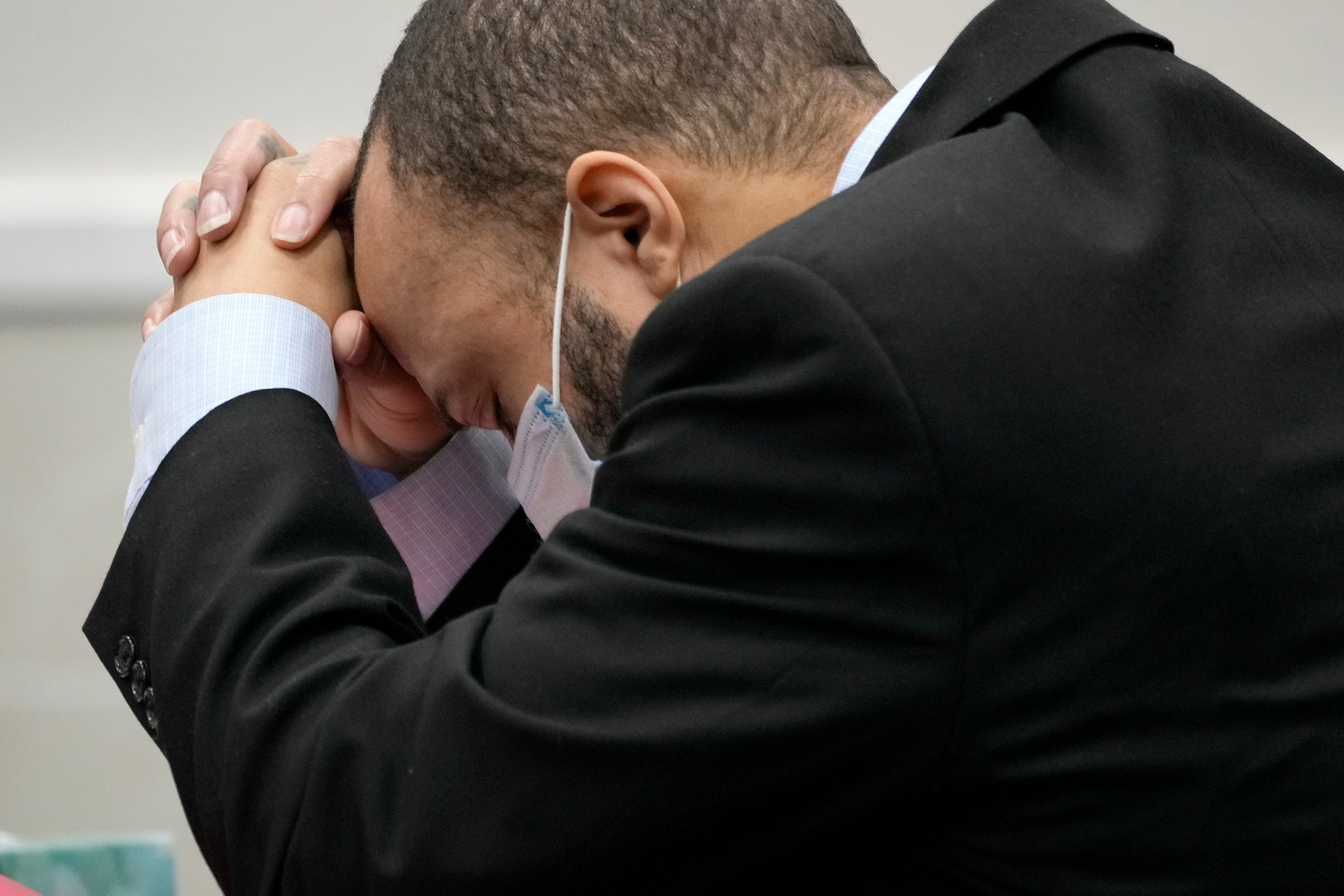Victims ready to speak at Christmas parade crash sentencing
Dozens of people are expected to speak at sentencing proceedings for a man convicted of killing six people when he drove his SUV through a Christmas parade in suburban Milwaukee last year

Your support helps us to tell the story
From reproductive rights to climate change to Big Tech, The Independent is on the ground when the story is developing. Whether it's investigating the financials of Elon Musk's pro-Trump PAC or producing our latest documentary, 'The A Word', which shines a light on the American women fighting for reproductive rights, we know how important it is to parse out the facts from the messaging.
At such a critical moment in US history, we need reporters on the ground. Your donation allows us to keep sending journalists to speak to both sides of the story.
The Independent is trusted by Americans across the entire political spectrum. And unlike many other quality news outlets, we choose not to lock Americans out of our reporting and analysis with paywalls. We believe quality journalism should be available to everyone, paid for by those who can afford it.
Your support makes all the difference.Dozens of people who were hurt or saw their loved ones injured when a man drove his SUV through a Christmas parade in suburban Milwaukee plan to address him for the first time Tuesday during what promises to be a raw, tearful two-day sentencing hearing.
Darrell Brooks Jr. drove his red Ford Escape through the parade in downtown Waukesha on Nov. 21, 2021. Six people were killed, including an 8-year-old boy. Scores of others were injured. A jury convicted Brooks last month of 76 charges, including six counts of first-degree intentional homicide and 61 counts of reckless endangerment.
Judge Jennifer Dorow set aside Tuesday for victim impact statements and Wednesday for sentencing.
Brooks, 40, almost certainly will spend the rest of his life in prison. Each homicide count carries a mandatory life sentence, and each endangerment count carries a maximum sentence of 17 1/2 years. Legal experts said they expect Dorow to make the life sentences consecutive, with no chance of parole, because to do otherwise would likely mean an intense backlash from the community.
“This guy’s never getting out,” said Tom Grieve, a Madison-based defense attorney. “He’s never going to see the light of day."
The crash left deep scars across southeastern Wisconsin that still haven’t healed. Several witnesses wept on the stand during Brooks’ trial as they described how the SUV barreled through the crowd, sending bodies flying through the air. Someone in the gallery yelled, “Burn in hell,” as Dorow read the guilty verdicts last month.
Prosecutors have said at least 45 people have asked to speak in court, including nine children.
Brooks chose to represent himself during his trial despite overwhelming evidence against him. His interactions with victim witnesses were tense, but he generally treated them respectfully, and they kept their answers short. Tuesday will be the victims' first chance to confront Brooks while he is forced to sit and listen.
State law doesn't place any restrictions on what can be said during victim impact statements other than that the remarks must be relevant to the sentence. The law doesn't define relevance; as long as people don't lapse into screaming or profanity, they will be free to say what they want.
Brooks told the judge this month that nine people will speak on his behalf, including his mother. Brooks had said she would testify at the trial, but he never called her to the stand.
The monthlong trial was punctuated by erratic outbursts from Brooks, who refused to answer to his own name, frequently interrupted Dorow and often refused to stop talking. The judge often had bailiffs move him to another courtroom where he could participate via video but she could mute his microphone.
After he was removed from the main courtroom during jury selection, he removed his shirt, sat on the defense table bare-chested and stuck down his pants a sign he'd been given to signal objections. Later in the trial, he built a small fort out of his boxes of legal documents and hid behind it so the camera couldn't pick up his face. At other times, he hid his face behind a Bible.
Dorow said in a memo to Brooks and prosecutors this month that she has received emails, letters, cards and gifts, including candy and other food, in connection with the case.
Any perception of judicial bias against Brooks could provide him with grounds for an appeal.
Dorow wrote that the gifts will not influence her sentencing decision, saying that she has taken “every step possible” to not read the correspondence and that she has distributed the candy among the clerk of court's staff.
The Milwaukee Journal Sentinel reported that much of the correspondence came from livestream viewers who praised the judge's handling of a difficult case.